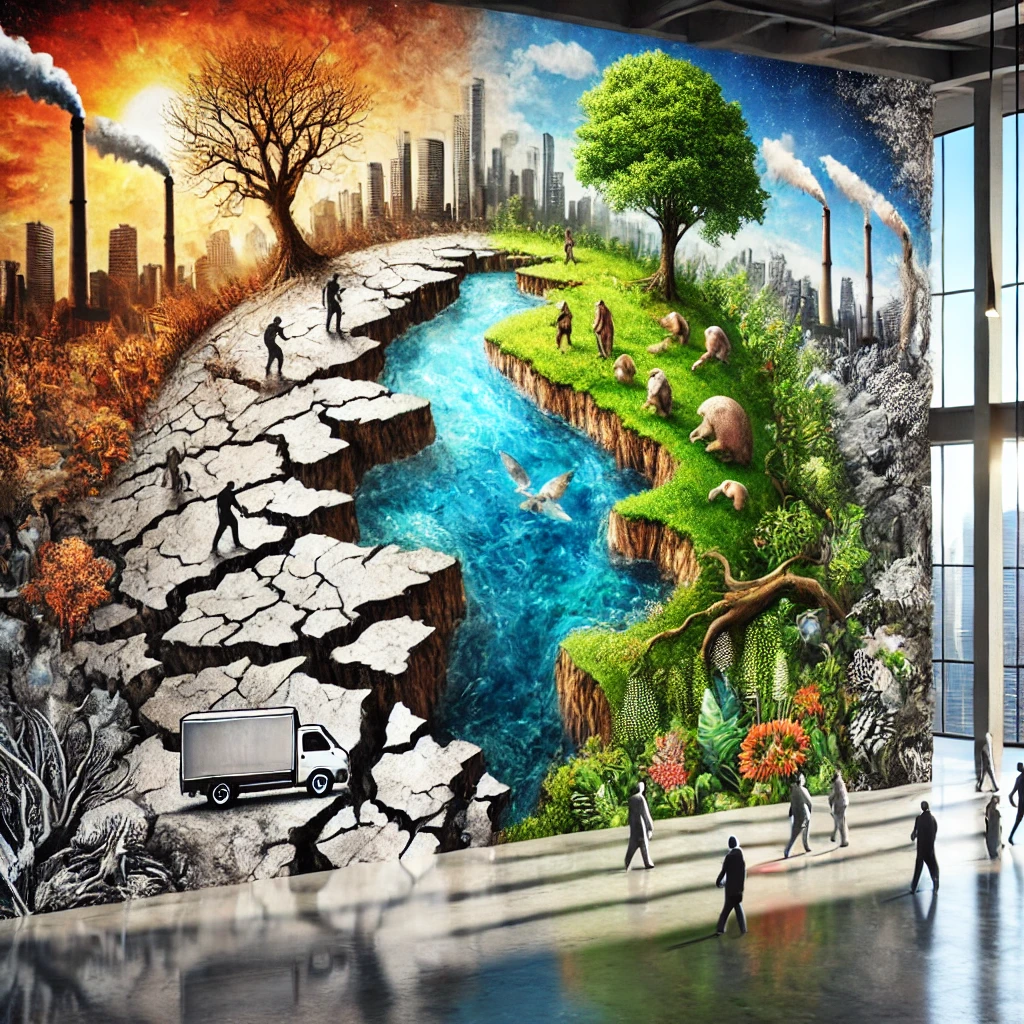There exists one and only one solution to climate change. This is not hyperbole. This is realism in its entirety. Every other proposed solution is a half-measure to the defining problem of our generation, and therefore no solution at all.
What more will it take? The entirety of California to burn to a crisp? Miami swallowed whole by the Atlantic? These catastrophes are no longer theoretical. They are postcards from the future—a future that arrives faster than anyone dares to imagine. Yet, we keep treating climate change like a plumbing issue, patching leaks instead of addressing why the pipes keep bursting.
The truth is sobering: incrementalism is failure in slow motion. Electric cars, solar panels, and carbon credits are Band-Aids on a severed artery. What’s needed is a complete overhaul, a dismantling of the very foundation of the society that brought us to this precipice. The problem isn’t just emissions or industry—it’s the worldview that allows us to see the natural world as a resource rather than a relative.
Western civilization is built on an anthropocentric foundation—a belief that humans are the center of the universe, masters of all we survey. This is the root cause of climate change. We behave as though the Earth is ours to dominate, exploit, and discard when it no longer serves our needs. But what if we turned this on its head? What if we rebuilt society not on the assumption of human supremacy, but on kinship with all living things?
This is not a radical idea. It is an ancient one found in modern science. Many Indigenous cultures operate on a kincentric worldview—one that sees humans as part of a broader family that includes animals, plants, rivers, and mountains. In this worldview, you don’t cut down a tree without understanding its role in the ecosystem. You don’t poison a river because it’s not just water. It’s a living entity, a relative, a person.
Rebuilding society from the ground up means embracing an Indigenous kincentric worldview. It means shifting our shared goals from resource extraction to reciprocity, from ownership to stewardship. It means recognizing that progress measured solely in GDP is the falsest god of them all. Real progress is measured in thriving ecosystems, clean air, abundant wildlife, and resilient communities.
But let’s be honest: this is a tall order. It requires undoing centuries of colonialism, capitalism, and industrialization. It requires unlearning the very stories we tell ourselves about success, growth, and human destiny. It means rethinking education, governance, and economics. And it means asking uncomfortable questions about sacrifice and privilege. Are we ready to live with less for the sake of the planet? Are we willing to give up convenience for sustainability? Are we brave enough to imagine a world where wealth is measured in relationships, not resources?
To some, this sounds utopian. To others, it’s naive. But let’s not kid ourselves: the current path is a death march. Utopian thinking isn’t the risk. It’s quite literally the only option left.
This is where the book Restoring the Kinship Worldview by Wahinkpe Topa (Four Arrows) and Darcia Narvaez becomes indispensable. The authors don’t just argue for a kincentric perspective—they show how it can be applied in practical, transformative ways. They remind us that this isn’t about returning to some imagined pre-industrial past. It’s about integrating timeless wisdom with modern science and innovation. It’s about remembering what we’ve forgotten: that survival has always depended on cooperation, not competition, and love is invariably a stronger force than fear.
The only solution to climate change is to rebuild—to take the shattered pieces of our world and assemble them into something that works not just for us, but for every living being. As the late anthropologist David Graeber famously wrote, “The ultimate hidden truth of the world is that it is something that we make, and could just as easily make differently.” This will not be an easy task, but then again, nothing worth doing in this tangled, mangled life of ours ever is. The question is not whether change is possible. The question is whether we’re brave enough to try. It’s always been about our collective courage—or lack thereof.

